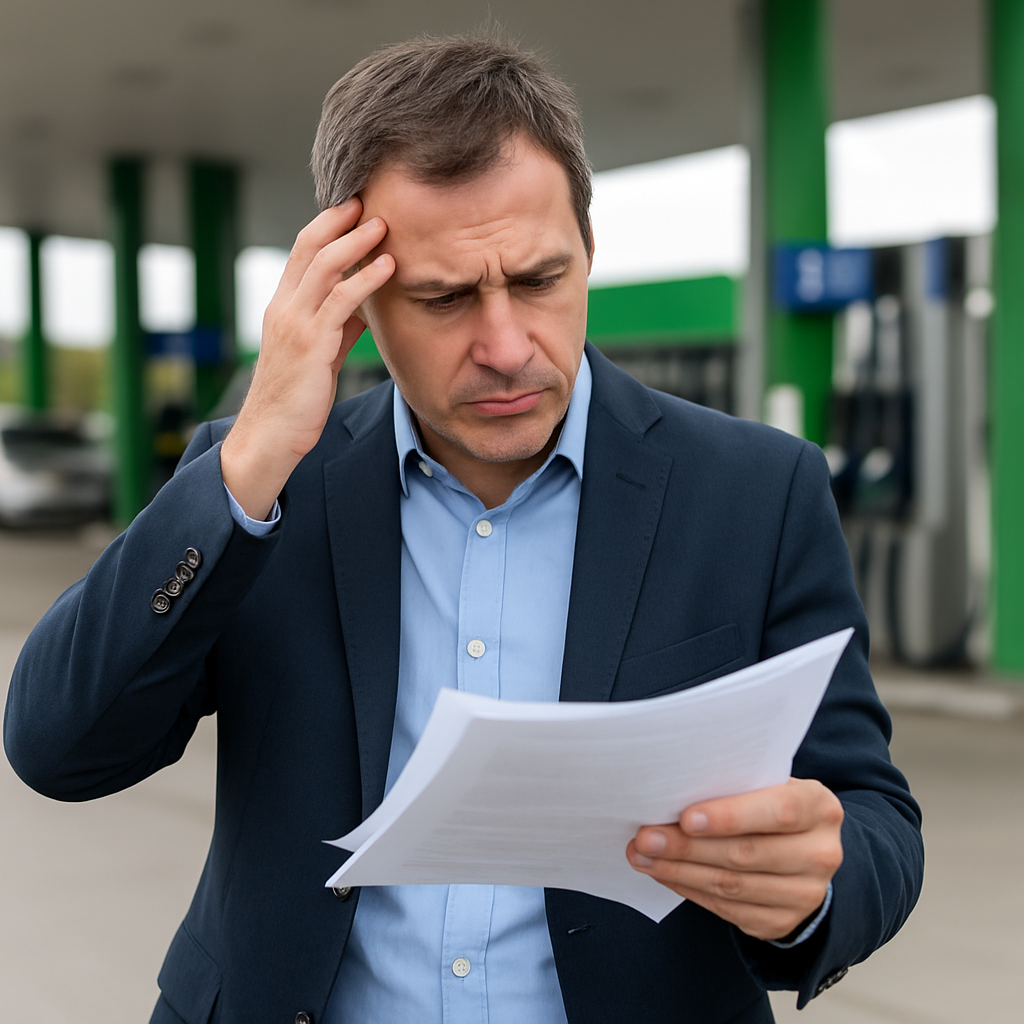The fuel station business is a lucrative investment in Turkey due to the high demand for fuel and the strategic importance of energy. However, establishing and operating a fuel station involves complex legal, technical, and regulatory requirements. Many investors face delays, penalties, or even closure of their stations due to common legal mistakes.
This article highlights the legal mistakes that must be avoided when establishing a fuel station, covering licensing, land selection, environmental permits, dealer agreements, and compliance with safety regulations.
1. Legal Framework for Fuel Stations
Fuel stations in Turkey operate under the following primary legal instruments:
- Petroleum Market Law No. 5015: Governs refining, distribution, and retail sale of petroleum products.
- Energy Market Regulatory Authority (EPDK) Regulations: Licensing and market compliance requirements.
- Municipality Zoning Laws: Construction permits and land use permissions.
- Environmental Law No. 2872: Regulates environmental impact assessments and waste management.
- Occupational Health and Safety Law No. 6331: Sets workplace safety standards.
Understanding and complying with these laws is essential to avoid legal issues.
2. Common Legal Mistakes and How to Avoid Them
2.1. Failure to Obtain EPDK Licenses
One of the most common mistakes is starting construction or operations without proper licensing.
- A retail fuel sales license must be obtained from EPDK.
- Investors must also have a dealer agreement with an EPDK-licensed fuel distribution company.
- Mistake: Believing that a distribution agreement alone is sufficient for legal operation.
- Solution: Ensure all EPDK license applications are submitted and approved before starting operations.
2.2. Incorrect Land Zoning
Fuel stations require land classified for commercial or service station use in the zoning plan.
- Mistake: Purchasing or leasing land without verifying its zoning status.
- Solution: Check with the local municipality whether the land is designated for fuel station use. If not, apply for a zoning plan amendment before any construction.
2.3. Incomplete Construction Permits
A construction permit (inşaat ruhsatı) is required from the local municipality.
- Mistake: Beginning construction with only architectural drawings or without approval of safety and technical plans.
- Solution: Obtain full construction and occupancy permits approved by fire safety and environmental authorities.
2.4. Ignoring Environmental Impact Assessments
Fuel stations must comply with environmental regulations, including:
- EIA (Environmental Impact Assessment) requirements or exemption certificates.
- Waste oil management and underground storage tank standards.
- Mistake: Not applying for EIA approval or failing to install leak detection systems.
- Solution: Submit EIA documentation and install appropriate containment and monitoring systems.
2.5. Unsafe Dealer Agreements
The relationship between the fuel station owner and the fuel distributor is governed by dealer agreements.
- Mistake: Signing agreements with unfair terms such as long-term exclusivity without negotiation.
- Solution: Have the dealer agreement reviewed by a lawyer specializing in energy and competition law to avoid anti-competitive clauses.
2.6. Lack of Occupational Health and Safety Compliance
- Fuel stations are high-risk areas due to flammable materials.
- Mistake: Not implementing proper safety procedures, fire-fighting equipment, or staff training.
- Solution: Create a comprehensive safety plan, conduct regular safety drills, and comply with Law No. 6331.
2.7. Overlooking Tax and Licensing Fees
- Investors must pay license fees, municipal taxes, and environmental contributions.
- Mistake: Delays or underpayment of fees can lead to penalties.
- Solution: Keep accurate financial records and ensure timely payment of EPDK fees and local taxes.
2.8. Non-Compliance with Fuel Quality Standards
Fuel quality is strictly monitored in Turkey.
- Mistake: Selling substandard or adulterated fuel, which leads to heavy EPDK fines and loss of license.
- Solution: Conduct regular quality control tests and ensure the fuel supply chain is reputable and compliant.
2.9. Mismanagement of Land Ownership and Lease Agreements
- Mistake: Building a station on leased land without ensuring the lease covers the full license term.
- Solution: Draft long-term lease agreements that align with EPDK licensing terms (minimum 10 years).
2.10. Ignoring Local Regulations
Municipalities often impose additional requirements such as:
- Parking regulations.
- Fire department approvals.
- Noise and pollution controls.
- Mistake: Assuming that EPDK approval is sufficient for all operations.
- Solution: Obtain all municipal and fire department approvals before commencing operations.
3. Step-by-Step Process to Legally Establish a Fuel Station
- Feasibility and Site Selection:
- Conduct a zoning check with the municipality.
- Analyze traffic and environmental impact.
- Licensing:
- Apply for EPDK retail license.
- Sign a dealer agreement with a fuel distribution company.
- Construction and Technical Permits:
- Obtain a construction permit.
- Install underground tanks and monitoring systems.
- Environmental Approvals:
- Secure EIA approval or exemption.
- Implement waste and spill management systems.
- Fire and Safety Compliance:
- Get approval from the fire department.
- Install fire suppression systems and emergency exits.
- Operational Permits:
- Obtain municipality operational permits.
- Ensure compliance with tax and billing regulations.
4. Legal Risks of Non-Compliance
4.1. Administrative Fines
Failure to comply with EPDK or environmental regulations may result in heavy fines.
4.2. License Revocation
EPDK can revoke licenses for repeated violations, leading to business closure.
4.3. Civil and Criminal Liability
Accidents, fuel leaks, or environmental damage can lead to:
- Civil lawsuits for compensation.
- Criminal investigations for negligence or environmental harm.
5. Role of Legal Counsel
A lawyer specialized in energy and petroleum law can:
- Review dealer and lease agreements.
- Ensure compliance with EPDK and municipal requirements.
- Manage disputes with suppliers or regulatory bodies.
- Assist in obtaining and renewing licenses.
6. Conclusion
Establishing a fuel station requires careful planning, legal compliance, and proactive risk management. Common mistakes such as failing to obtain the proper licenses, neglecting environmental requirements, or signing unfavorable dealer contracts can result in significant financial and legal consequences.
Key Takeaways:
- Conduct due diligence on zoning, land rights, and environmental obligations.
- Ensure all EPDK, municipal, and safety approvals are obtained before starting operations.
- Work with legal and technical professionals to avoid costly errors.

Yanıt yok